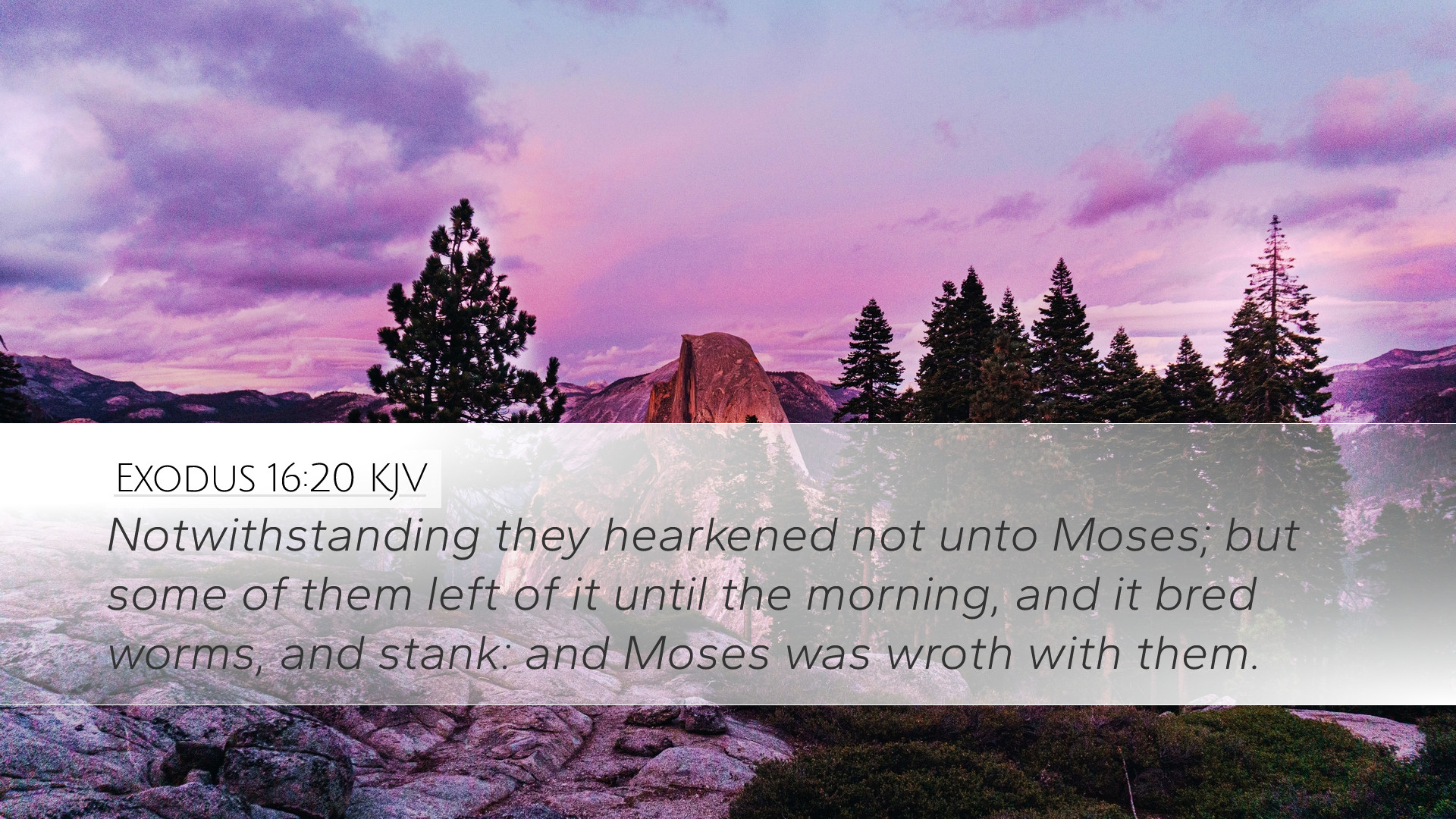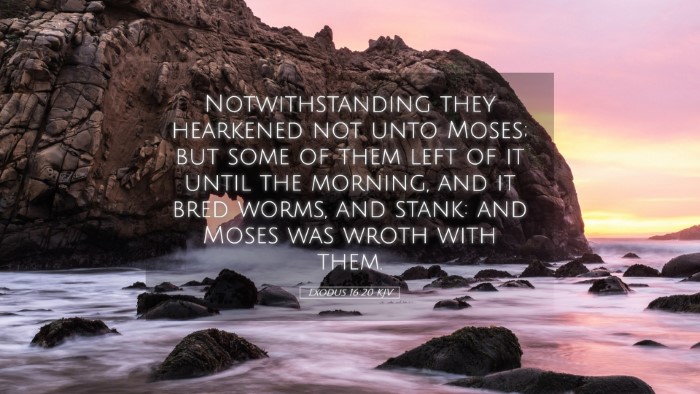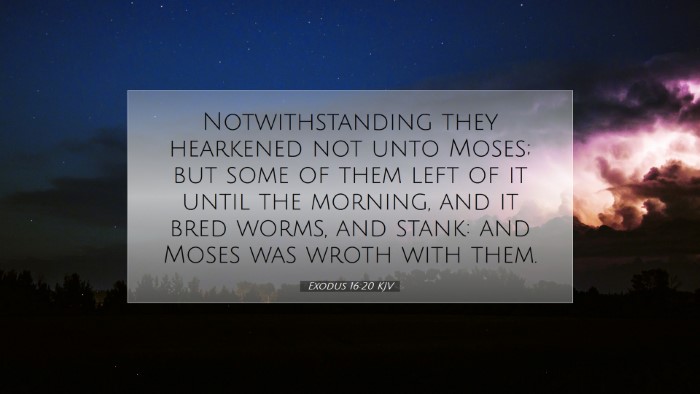Commentary on Exodus 16:20
Verse: "Notwithstanding they hearkened not unto Moses; but some of them left of it until the morning, and it bred worms, and stank: and Moses was wroth with them."
Introduction
The passage of Exodus 16:20 explores the disobedience of the Israelites during their time in the wilderness, specifically regarding the gathering of manna. This commentary delves into the insights provided by public domain scholars, offering theological reflections and practical admonitions relevant for pastors, students, and theologians.
Contextual Background
In the broader narrative of Exodus, God provides the Israelites with manna as sustenance during their exodus from Egypt. This miraculous provision is not only a means of survival but also serves as a test of faith and obedience. The instruction given was clear: gather only what is needed for the day, with a special provision for the Sabbath.
Historical Significance
This instance highlights the formative period of Israel's identity as a people chosen by God, emphasizing their dependence on divine provision. The failure to follow God's instructions reveals deeper issues of trust and obedience within the community.
Insights from Commentaries
Matthew Henry
Matthew Henry emphasizes the consequences of disobedience in this passage. He notes that the Israelites' choice to keep manna until the next morning directly contradicted God's command. Henry highlights that "when the Israelites left some of the manna until morning, it bred worms and stank, illustrating the futility of attempting to secure tomorrow’s provision by disobeying God's directive for today." This points to a broader spiritual truth: attempting to grasp what is meant to be lived in faith often leads to decay and dissatisfaction.
Albert Barnes
Albert Barnes provides a practical viewpoint regarding the character of disobedience reflected in the actions of some Israelites. He suggests that the failure to heed the command shows a lack of faith, indicating that they leaned on their understanding rather than trusting in God’s providence. Barnes states, "This act of disobedience demonstrates that they still struggled with their past bondage in Egypt, unable to fully embrace the new life of faith that God desired for them." He posits that this historical incident serves as a cautionary tale for modern believers, prompting introspection about how often they cling to the past instead of moving forward in trust.
Adam Clarke
Adam Clarke provides a more theological examination, linking the physical act of gathering manna with spiritual nourishment. He argues that "the act of leaving the manna shows a fundamental misunderstanding of God's nature and His provision for the people." Clarke interprets the manna as a type and shadow of Christ, the true bread of heaven, and underscores that failure to receive it properly leads to spiritual decay. His insights lead to reflection on daily reliance on Christ for sustenance, both physically and spiritually.
Theological Reflections
Obedience and Trust
This passage serves as a profound reminder of the relationship between obedience and faith. The Israelites' decision to retain the manna speaks to a deeper struggle with doubt and self-sufficiency. In times of uncertainties, the act of trusting in God becomes a necessity for spiritual growth and maturity.
Consequences of Disobedience
The inevitable decay that follows the disobedience illustrates God's justice and His desire for His people to live in a way that honors His commands. There is a profound lesson in the consequences that accompany our choices, especially when those choices lead us away from God’s directives.
Modern Application
For pastors and theologians, this passage invites reflection on how contemporary Christians can sometimes exhibit similar patterns of disbelief. Are there areas in which we are holding onto what God has asked us to release? How do we ensure that we receive daily sustenance from God without resorting to our own means of security?
Practical Admonitions
- Embrace Daily Dependence: Recognize the daily nature of God's provision in our lives. Just as the Israelites were to gather manna each day, we are called to seek God's presence and wisdom daily.
- Let Go of Control: Identify areas where we may be trying to control outcomes instead of trusting in God's goodness. This act of relinquishing control can lead to peace and growth.
- Encourage Community Obedience: Leaders should foster an environment where accountability and encouragement in obedience to God's word are valued and practiced within the church community.
Conclusion
Exodus 16:20 serves as a powerful narrative on the importance of obedience, the nature of trust, and the consequences of failing to heed God's word. This commentary combines the insights of Matthew Henry, Albert Barnes, and Adam Clarke to illuminate the timeless truths embedded in this scripture, aiming to challenge and inspire those who seek to understand and live out the principles of faith in their daily lives.


